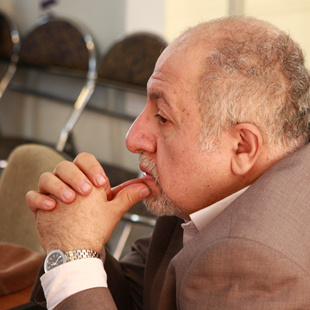The US Green-Lights the Recognition of a Palestinian State

Developments that were aimed at toppling dictator and traditional regimes had the following characteristics:
1- Regimes with a cold approach on the international scene, and an order that was based on an individual, party or military dictatorship, based on a coup.
2- They all had close similarities in the relationship between the rulers and their people.
3- A closed social and political system
4- The lack of free and adequate information for the people
5- The lack of free and independent media and the limitations formed in this area.
6- A weak economy and an inefficient body of management and executives.
According to the weaknesses mentioned above, the infrastructures of countries with these characteristics are gradually falling apart and therefore changing. We witnessed the fall of three regimes whose average life was thirty years. These countries were Egypt, Tunisia and Yemen. As known governments in these countries were based on totalitarian single party, military, and corrupt systems, they were tilted toward the West as well.
Eventually we should wait for more developments, which have started in other countries and have not finalized yet. In particular Libya, which suffers from a lack of civilian and social advancements, the developments are very backward compared to other countries. In addition, due to its rich oil and gas resources, Libya is different from other countries.
It could be said that the intervention of the West is for the short or medium term, and is in order to identify forces who could take responsibility in governing Libya in the future. According to this categorization, Libya is divided into the eastern and western part and the Benghazi-Tripoli pole, with the support of the West for the Benghazi pole. Through this approach we can say that the pretext of power transition in the upcoming months is going to flow from Tripoli to Ben Ghazi.
Another country that should wait for such critical incidents is Syria. We should admit that the recent heightened crisis in this country shows that the government, especially the Baath regime, is incapable of controlling the situation and responding to the demands of the people.
We usually witness protests on Fridays, and the influence of groups like the Muslim Brotherhood is evident in them. The government has lost its control over these groups.
The most outstanding event could be the change in the relation between Syria and Turkey. Turkey is now home to refuges from the Syrian side; in addition, the Syrian opposition meeting in this country has angered the Syrians. These incidents show a change of attitude on the Turkish side in regards to Syria.
The developments in Syria, along with those which are taking place in the Persian Gulf countries, are now in a situation of tranquility. In addition, movements in Jordan and Morocco show that these developments are not over yet. These developments have occurred in some of these countries, but it will be a long time before these movements are thoroughly over.
The Western Stance toward the Regional Developments
The clear stance taken by the US in regards to the Palestinian-Israeli conflict and the recognition of the Palestinian government within the 1967 borders show a change of policy in the US Middle East policies. Other Western countries and powers and the UN agree with this policy as well. Some Israeli parties, which oppose the government, also agreed with the Obama administration policies; this illustrates a major change in the Arab-Israeli equation in the US. It seems that this complex and decisive process will certainly move forward.
One of the main indicators of this event that resulted in this process was the reconciliation between Fatah and Hamas with the mediatory role of the Egyptian military government in Cairo. Another important indicator is the opening of the Rafah crossing in Gaza, which was executed by the Egyptian military government as well.
In conclusion it has to be said that due to the closeness of the Egyptian military government to the US, it seems that all these developments occurred with the consent of US officials. Therefore, we should witness a great global approach to the subject of the establishment of a Palestinian government in the next UN General Assembly in September. One of the measures taken in this regard is the reopening of the Palestinian embassy in London, and the welcoming announcements of some Latin American countries that indicates a major change in their approach to this issue. Therefore, it seems that we will witness a major development in the regional equations of the Middle East in the next few months.

